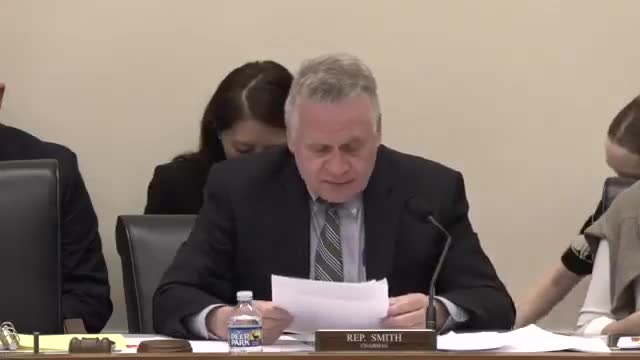Witnesses testify on Sudan's humanitarian crisis and US policy failures
May 25, 2025 | Foreign Affairs: House Committee, Standing Committees - House & Senate, Congressional Hearings Compilation
This article was created by AI summarizing key points discussed. AI makes mistakes, so for full details and context, please refer to the video of the full meeting. Please report any errors so we can fix them. Report an error »

The U.S. House Committee on Foreign Affairs convened on May 25, 2025, to address the escalating humanitarian crisis in Sudan, now recognized as the largest in the world. The meeting highlighted the dire situation faced by nearly 25 million Sudanese, half of the country's population, who are experiencing acute hunger, with over 500,000 at risk of famine. Since the outbreak of conflict two years ago, more than 13 million people have been displaced, including nearly 4 million who have fled to neighboring countries.
Committee members expressed deep concern over the ongoing violence perpetrated by the Sudanese Armed Forces (SAF) and the Rapid Support Forces (RSF), which have been accused of committing war crimes and exacerbating the humanitarian disaster. The conflict has drawn in external actors, with countries like Egypt, Iran, Qatar, and Turkey providing support to the SAF, while the RSF has received backing from the United Arab Emirates and others, turning the conflict into a regional proxy war.
Witnesses at the meeting criticized the Trump administration's response to the crisis, arguing that cuts to U.S. foreign assistance have worsened the suffering of the Sudanese people. They pointed out that significant reductions in humanitarian aid, including food and nutrition programs, have led to the closure of over 80% of community kitchens across Sudan, leaving many without access to essential food supplies.
The committee members called for a more active U.S. role in negotiating an end to the conflict, emphasizing the need for the administration to prioritize Sudan in its foreign policy. They noted the absence of key appointments within the State Department, including an assistant secretary for African Affairs and a special envoy for Sudan, which they argued reflects a lack of commitment to addressing the crisis.
In conclusion, the meeting underscored the urgent need for the U.S. and the international community to take decisive action to halt the violence in Sudan and support the establishment of a civilian government, paving the way for democratic elections and the rebuilding of the war-torn nation.
Committee members expressed deep concern over the ongoing violence perpetrated by the Sudanese Armed Forces (SAF) and the Rapid Support Forces (RSF), which have been accused of committing war crimes and exacerbating the humanitarian disaster. The conflict has drawn in external actors, with countries like Egypt, Iran, Qatar, and Turkey providing support to the SAF, while the RSF has received backing from the United Arab Emirates and others, turning the conflict into a regional proxy war.
Witnesses at the meeting criticized the Trump administration's response to the crisis, arguing that cuts to U.S. foreign assistance have worsened the suffering of the Sudanese people. They pointed out that significant reductions in humanitarian aid, including food and nutrition programs, have led to the closure of over 80% of community kitchens across Sudan, leaving many without access to essential food supplies.
The committee members called for a more active U.S. role in negotiating an end to the conflict, emphasizing the need for the administration to prioritize Sudan in its foreign policy. They noted the absence of key appointments within the State Department, including an assistant secretary for African Affairs and a special envoy for Sudan, which they argued reflects a lack of commitment to addressing the crisis.
In conclusion, the meeting underscored the urgent need for the U.S. and the international community to take decisive action to halt the violence in Sudan and support the establishment of a civilian government, paving the way for democratic elections and the rebuilding of the war-torn nation.
View full meeting
This article is based on a recent meeting—watch the full video and explore the complete transcript for deeper insights into the discussion.
View full meeting